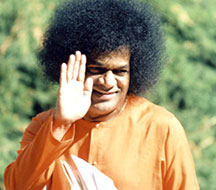
Awake, arise stop not till the goal is reached
Bangalore, SSSIHL-BRN (Summer Course )
Description
The Vedas declare: Uttisthata jagrata prapya varannibodhata. Arise, awake, and stop not till the goal is reached! Drowned in foolishness, you are sleeping soundly! Get up from this slumber of ajnana (ignorance), enter the realm of prajnana (consciousness), and experience sujnana (enlightenment). This really is the type of sadhana you ought to undertake. People do not understand this and simply declare that they are doing sadhana. Everyone is trying; trying, trying all the time! What is all this business about trying? Meek and puny efforts cannot be called sadhana. To qualify for that name, the effort must be strong and made with firm determination. You must be firmly resolved to achieve the goal. In life, actions must be accompanied by firm resolves. God too is firmly determined about the things He chooses to do. In the Gita He says, Paritranaya Sadhunam Vinasaya Ca Duskrtam. Dharmasamsthapanarthaya Sambhavami Yuge Yuge. This is His first resolution. He says, “For the protection of the virtuous, for the destruction of the wicked, and for the re-establishment of dharma, I am born from age to age.” Next He says, Ananyascintayantomam Ye Janah Paryupasate. Tesam Nityabhiyuktanam Yogaksemam Vahamyaham. “As for those who exclusively worship Me, who meditate on Me with no other thought and who are ever steadfast – I bear entirely the burden of their welfare”. If God Himself can make resolutions, why not you? What are the spiritual goals you have resolved to attain in life? If you have not set any such goals for yourself, then your life would be empty and meaningless. Life must have goals, and must be a brave journey involving the conquest of (spiritual) obstacles. Life’s journey is full of bumps and jumps; without resolve and determination, these bumps can produce confusion and depression. When confusion and depression march hand in hand, life would become a total waste.
Topics
-Sadhana
-
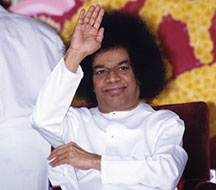
How to go through the path of Vanaprastha
00:03:00The Vanaprastham stage is full of austerities. Vanaprastham precedes the Sanyasa stage. It is possible to lead the Sanyasa path correctly only when one’s conduct and behaviour in Vanaprastham is proper. Both husband and wife must leave the home and travel northwards in the forest. Leaving their home, the wife and husband, must travel northwards till their death. They must not live in places which have walls or the roof. The life of Vanaprastha is that of continuing on the chosen path in spite of being exposed to rain and sun. The wife and the husband lead the life in the forest as brother and sister. Commencing from the full moon day they must gradually cut down the food intake morsel by morsel. By the new moon day they must stop taking food altogether. From new moon day onwards they must increase their food intake morsel by morsel and by full moon day they must stop food intake. If any kind householder wants to serve food to the Vanaprastha, it must not be served in plates. The Vanaprastha should not dine in other’s homes. They must take the food on a leaf, eat it outside and discard the leaf. The people leading the life of Vanaprastha stage observed such severe and strict austerities.
-
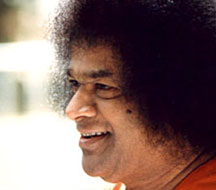
Do Sadhana to earn the grace of God and not for the praise of others
00:01:31One need not go after name and fame in the physical world around. One must indulge in the spiritual practices to earn the grace of God. The Upanishads state that: “You are the child of immortality”. Hence man must live up to it. The Upanishads caution that one is but the child of immortality and not one of mortality. Man indulges in this external physical world in many ways, sullying his life. Giving up one’s attachment to the worldly objects and developing love for the serving others, one must endeavour to indulge in serving others with a spirit of sacrifice. Past is past. At least in future the services must be done with a cent percent spirit of sacrifice.
-
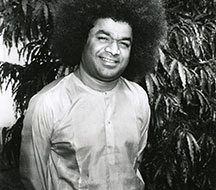
Every Sadhana must lead you on the inward journey
00:03:29The day one develops inner vision ,one pacifies the attractions of the external vision. Man today undertakes many spiritual practices; takes to the nine paths of devotion. In spite of all spiritual pursuits, one fails to realise the truth that, that which one aspires and wants to experience is innate, within oneself. External endeavours give only temporary happiness. So long as one listens to bhajans one is immersed in happiness but the moment the bhajans conclude, so does the happiness. The happiness that is caused due to external actions remains on the outside. This does not imply that one must not sing bhajans. Whatever be the spiritual practices that one undertakes, one must make an effort to do with inner meaning. People do various spiritual practices like penance, yoga and meditation - all these pertain to the body but not to the heart. Every spiritual aspirant does the practices mentally. Mind is not of stable nature. “Chanchalam hi manaa Krishna, kamanibalavadrudam”, Mind is wavering, dangerous and very strong. How can the practices which are undertaken with such mind, reach the heart? Practices at the mental level offer only temporary satisfaction and pacifies the heat of the emotions. No spiritual pursuit will ever give permanent happiness for all spiritual endeavours are external. There are nine paths of devotion: ‘sravanam’, listening, ‘keertanam’ singing, ‘Vishnu smaranam’, chanting, ‘paadasevanam’ serving, ‘vandanam’, salutation, ‘archanam’ worship, ‘sneham’ friendship, ‘daasyam’ service, and ‘atma nivedanam’ surrender. Ultimately surrender is the one that bestows permanent bliss. Once one surrenders, one does not have anything left, for it contains everything.
-
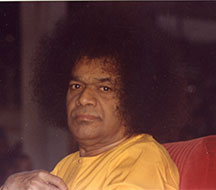
Without love spiritual sadhana is a waste
00:02:19Without sanctifying one’s heart, any number of spiritual practises that one undertakes viz. Japa (chanting), tapa (penance), dhyana (meditation) etc will not yield fruit. It is well known to everybody that if one decides to have idly and sambar for breakfast, one tends to get the fresh vegetables that are available nearby, good quality lentils, fresh tamarind, and all the other ingredients necessary for making Sambar. But even after ensuring the freshness of the ingredients used, if one gets nausea on eating the sambar then there must be something wrong with the vessel in which sambar has been made. Likewise, when one takes to meditation, japa, and properly sung bhajans with a heart bereft of love, those practises turn into poison. Therefore, first and fore mostly, one must fill one’s heart with love. Without love in the heart all the practises become null and void.
-
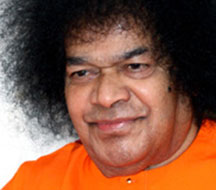
With sincerity we can achieve anything
00:01:00Likewise, divinity is present everywhere and is all pervading. One is not pursuing to realise this divinity in all earnestness. With sincerity and steadfastness one can achieve anything. Hence the saying- “Sradhdhawaan labhate jnanam!!” –the earnest one acquires wisdom!! An earnest man can make a small fire into a big flame. A man without sincerity extinguishes even a very big flame.
-
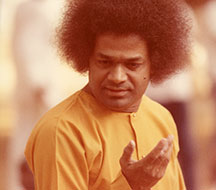
Loving God is the true Sadhana
00:00:50So, every person should love God. There is nothing beyond love for God. That is the Sadhana, the effort that we should put in. We think we got to achieve something. If you have the desire to achieve anything, you should try to gain the strong faith and love for God. What is the use of anything else? This should come from the Grace of God. It is the grace of God which increases the strength of your love, that is the reflection of the inner being.
Topics
- Analogies
- Atma
- Attachment
- Balvikas
- Bhaja Govindam
- Bhajans
- Body
- Character
- Company
- Compassion
- Culture
- Day to day
- Desire
- Devotees
- Devotion
- Dharma
- Discipline
- Discrimination
- Doctors
- Education
- Faith
- Festivals
- Forbearance
- Gayathri
- God
- Gratitude
- Guru
- Health and healthcare
- HIS Life
- Human values
- India
- Karma
- Love
- Mahabharata
- Man
- Meditation
- Mind
- Music
- Musicians
- Namasmarana
- Nature
- Parents
- Philosophical concepts
- Pleasure and Pain
- Practice
- Ramayana
- Religion
- Sacrifice
- Sai Organization
- Saints
- Sathya
- Science
- Senses
- Service
- Sevadal
- Shanthi
- Shirdi Baba
- Society
- Spirituality
- Students
- Thoughts
- Time
- Unity
- Upanishad
- Vedas
- Vices
- Yoga
- Youth
